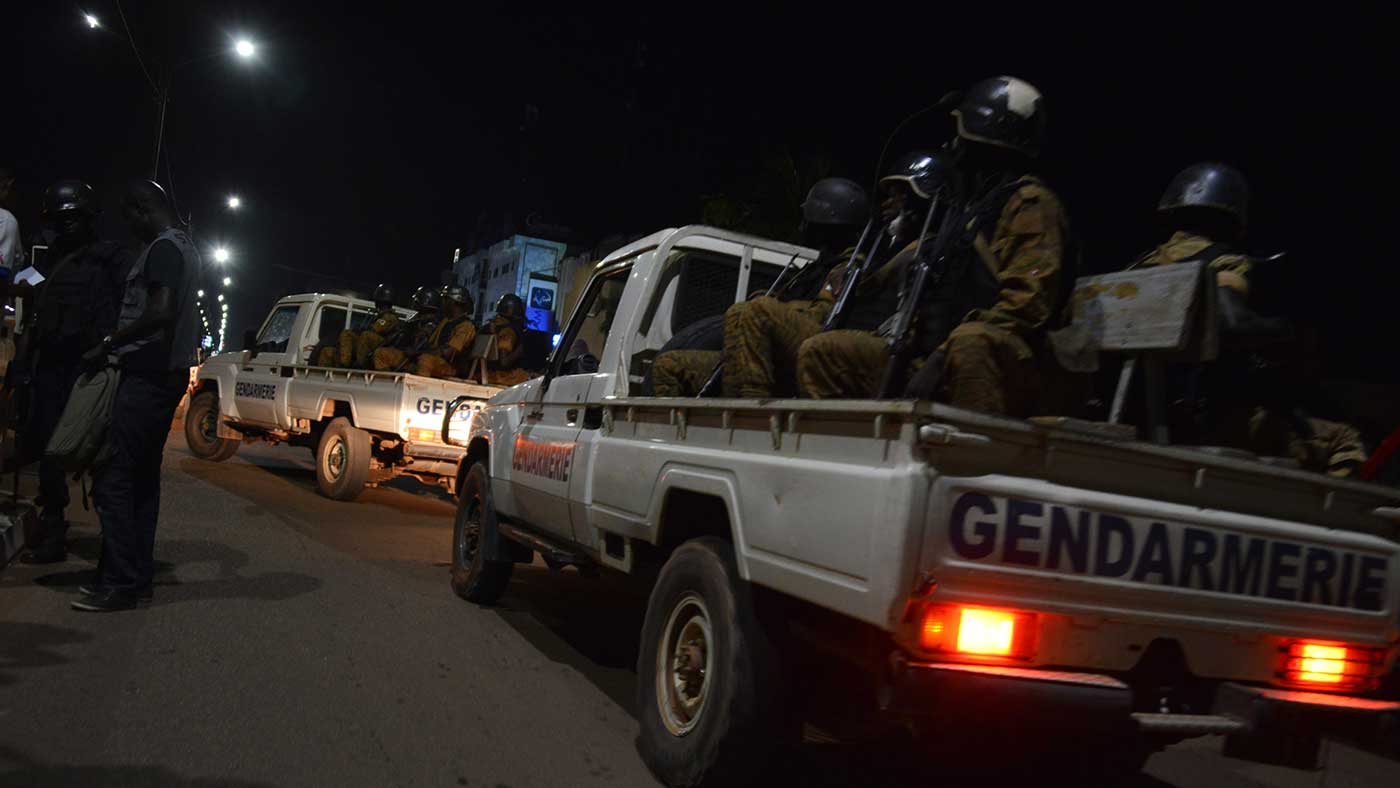Seventeen dead in Ouagadougou restaurant attack
The Istanbul restaurant in Burkina Fasa's capital was invaded by militants last night

A free daily email with the biggest news stories of the day – and the best features from TheWeek.com
You are now subscribed
Your newsletter sign-up was successful
At least 17 people have been killed and eight others wounded during a terrorist attack on a restaurant in Ouagadougou, the capital of the west African nation of Burkina Faso.
Witnesses say that at least three of the attackers were killed by security forces, but several people remain trapped inside to the building.
"Attackers barricaded themselves in the Istanbul restaurant on Avenue Kwame Nkrumah in the centre of the city," CNN says. It was known to be popular with foreigners visiting the nation's capital.
The Week
Escape your echo chamber. Get the facts behind the news, plus analysis from multiple perspectives.

Sign up for The Week's Free Newsletters
From our morning news briefing to a weekly Good News Newsletter, get the best of The Week delivered directly to your inbox.
From our morning news briefing to a weekly Good News Newsletter, get the best of The Week delivered directly to your inbox.
"There are fears that the attack is the work of one of the affiliates of al-Qaeda that are active in the Sahel region," the BBC's Alex Duval Smith reports.
However, the Guardian says "there was no immediate claim of responsibility for the violence on Sunday, which continued into the early hours of Monday with another heavy exchange of gunfire overheard by witnesses".
Burkina Faso, "like other countries in West Africa, has been targeted sporadically by jihadist groups operating across Africa's Sahel," Reuters reports. "Most attacks have been along its remote northern border region with Mali, which has seen attacks by Islamist militants for more than a decade."
A free daily email with the biggest news stories of the day – and the best features from TheWeek.com
-
 How to Get to Heaven from Belfast: a ‘highly entertaining ride’
How to Get to Heaven from Belfast: a ‘highly entertaining ride’The Week Recommends Mystery-comedy from the creator of Derry Girls should be ‘your new binge-watch’
-
 The 8 best TV shows of the 1960s
The 8 best TV shows of the 1960sThe standout shows of this decade take viewers from outer space to the Wild West
-
 Microdramas are booming
Microdramas are boomingUnder the radar Scroll to watch a whole movie
-
 Epstein files topple law CEO, roil UK government
Epstein files topple law CEO, roil UK governmentSpeed Read Peter Mandelson, Britain’s former ambassador to the US, is caught up in the scandal
-
 Iran and US prepare to meet after skirmishes
Iran and US prepare to meet after skirmishesSpeed Read The incident comes amid heightened tensions in the Middle East
-
 Israel retrieves final hostage’s body from Gaza
Israel retrieves final hostage’s body from GazaSpeed Read The 24-year-old police officer was killed during the initial Hamas attack
-
 China’s Xi targets top general in growing purge
China’s Xi targets top general in growing purgeSpeed Read Zhang Youxia is being investigated over ‘grave violations’ of the law
-
 Panama and Canada are negotiating over a crucial copper mine
Panama and Canada are negotiating over a crucial copper mineIn the Spotlight Panama is set to make a final decision on the mine this summer
-
 Why Greenland’s natural resources are nearly impossible to mine
Why Greenland’s natural resources are nearly impossible to mineThe Explainer The country’s natural landscape makes the task extremely difficult
-
 Iran cuts internet as protests escalate
Iran cuts internet as protests escalateSpeed Reada Government buildings across the country have been set on fire
-
 US nabs ‘shadow’ tanker claimed by Russia
US nabs ‘shadow’ tanker claimed by RussiaSpeed Read The ship was one of two vessels seized by the US military